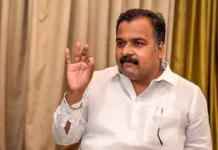
NEW DELHI: The Health Ministers of Brazil, Russia, India, China and South Africa (BRICS) at their meeting in New Delhi on January 11 decided to pool their resources to manufacture affordable health products and concentrate on research in some cutting edge areas to achieve universal access to medicines. The five-nation group represents 43 per cent of the world population.
The Delhi communiqué of the BRICS conference commits the five nations to pursue such health-based issues as reducing, if not ending, the use of tobacco products in the member countries and, thereby, strengthening public health.
All the five countries are emerging nations and account for sizeable economies, which are poised to grow larger than that of many developed countries. Yet, it is also true that they are home to some communicable and non-communicable diseases, which have, more or less, been eradicated in the first world. Among the five, India has a very thriving drug industry with footprints in several countries in Asia and Africa.
In terms of cost, the prices of Indian drugs are a fraction of similar drugs manufactured and marketed by multinational drug firms. India’s plans to force a reduction in the price of some popular anti-cancer drugs have already rattled such firms, which rake in huge profits.
Cooperation among the BRICS nations will go a long way in meeting the challenges of providing high-quality medicines at affordable cost to the teeming millions. One ground on which Western pharmaceutical firms demand and extract high prices for their products is the enormous cost they have to bear on research and development (R&D).
This can be countered only if the drug firms in these countries are able to step up their R&D activities to produce drugs targeted at diseases commonly found in these countries. Needless to say, they need to encourage production and use of generic drugs, which are much cheaper than branded products.
During his opening remarks, India’s Minister of Health and Family Welfare Ghulam Nabi Azad highlighted the progress of the BRICS countries in the global AIDS response. “In India, we have reduced new HIV infections by 57% in the last decade, which puts us on track to halt and reverse the spread of HIV.” He was making reference to reaching one key HIV-related development goal by 2015.
Addressing the participants, UNAIDS Executive Director Michel Sidibé emphasized the unique role of the BRICS countries to draw on their positive experience with HIV to serve as an engine for innovation, research and development of health solutions for other developing countries. “Today, the BRICS are demonstrating how health is increasingly a tool of foreign policy and a vehicle for promoting global health and development for the entire world,” said Mr Sidibe. He also described global health as going through an important transition beyond disease specific approaches and adopting a people-centered approach to global health.
Several of the other BRICS Ministers highlighted their national commitments to HIV and the need to create a BRICS platform to enhance cooperation on global health, including HIV.
The five BRICS countries represent 43% of the global population, giving them a unique and growing role in contributing to global health. According to Minister Azad, “the BRICS are very mature in our outlook, and have almost achieved adulthood. Let us now work together to consolidate our gains and collaborate at the bilateral and multilateral levels to provide global leadership in many areas.”
The meeting adopted the Delhi Communique, which calls for the BRICS to renew efforts to face the continued challenge posed by HIV. The Delhi Communique reiterated the commitment of the BRICS countries to “ensure that bilateral and regional trade agreements do not undermine TRIPS flexibilities so as to assure the availability of affordable generic antiretroviral drugs to developing countries.”
Intellectual property and trade flexibilities within the intellectual property rights system were set out in the World Trade Organization Agreement on Trade-Related Aspects of Intellectual Property Rights (TRIPS). Evidence from countries across the world shows that the use of TRIPS flexibilities has helped substantially lower the costs of HIV treatment.
At the closing of the meeting, it was announced that the next BRICS Ministerial meeting will be hosted by South Africa in January 2014.
India Post News Service






